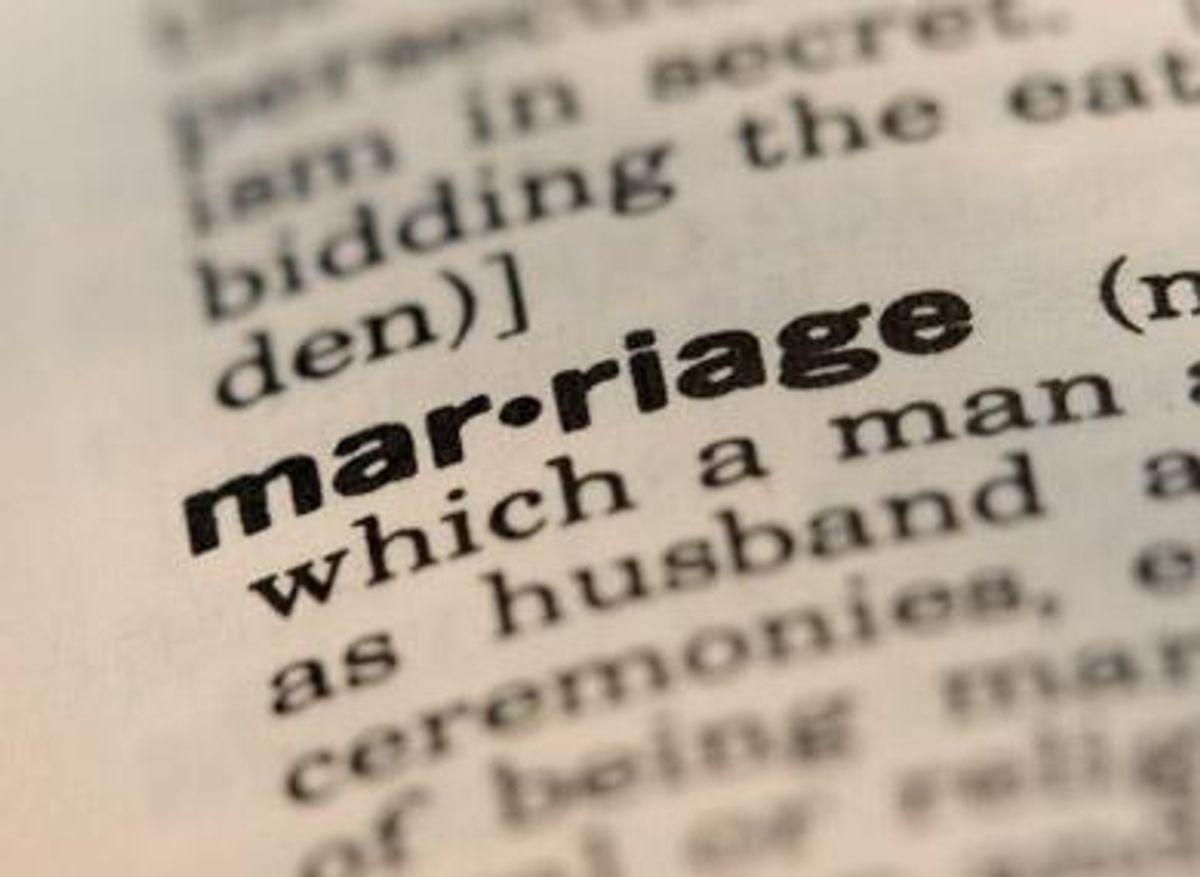So often in the struggle for civil rights, gays and lesbians face criticisms from social conservatives regarding tradition. When asserting that marriage has always been solely a union between one man and one woman, our adversaries trot out old dictionary definitions to support their claims. But just because some dictionaries in the past defined marriage in this way does not mean that the word is used in the same way today. The job of dictionaries is primarily to describe how language is used, not to dictate how it should be used.
I'm the supervising editor for The American Heritage Dictionary and a lexicographer. In January the other dictionary editors and I revised several definitions relating to the word marriage to reflect the changes in legal status that have occurred over the past few years. For example, the definition of widower formerly read "A man whose wife has died and who has not remarried." I revised this definition to "A man whose spouse has died and who has not remarried."
Just two months later my own husband died unexpectedly and accidentally. We had been together almost 15 years. Because we were residents of Massachusetts, we had been able to marry in the fall of 2004. Suddenly I found myself to be a widower, and when our 2009 printing came off the presses in the spring, it included the updated definition of widower -- a word that now applied to me. In the shattered aftermath of profound loss, an obsolete or incomplete definition of widower would seem an insignificant detail, but all such trivial details viewed together coalesce into a constant reminder of a two-tiered, unequal system. Therefore, having had the ability to revise the definitions that appear in a major American dictionary took on an important resonance for me.
Many sociological terms have undergone shifts in the past 150 years as society changes. The words family (no longer limited to stereotypical nuclear units) and gay (with the traditional "merry" sense becoming secondary) provide prime examples. Marriage, because of its legally institutionalized status, presents a significantly important development. Seven countries and five U.S. states have codified marriage equality, regardless of sexual orientation. This altered reality of the institution led us to revise the definition of the word as follows: "The legal union of a man and woman as husband and wife, and in some jurisdictions, between two persons of the same sex, usually entailing legal obligations of each person to the other." This definition is straightforward and indisputable. Even the most ardent marriage equality foe cannot dispute the fact that in some jurisdictions two people of the same sex can get married to each other. And so there it is, in the first sense of marriage, which appears in our online and print reference works from spring 2009 onward.
In Massachusetts, five years after marriage equality was realized, the issue of what marriage ought to be has become irrelevant to most residents. (Shortly after my spouse's death, I wrote an op-ed for Americablog that examines this issue.) Attitudes elsewhere are changing slowly, but they are changing. Each time I examine this semantic cluster around the word marriage as we update our other dictionary titles, I become surreally aware that I am the one who is literally changing the definition of words like widower. The loss of one's spouse is a wrenching experience, but I am fortunate to have been in a position to implement this change so that the dictionary accurately reflects the reality of today's language use. The next time you're discussing marriage equality and an opponent brandishes an obsolete dictionary definition, don't be dismayed. You can counter with a truly up-to-date definition from an authoritative source.


















































































